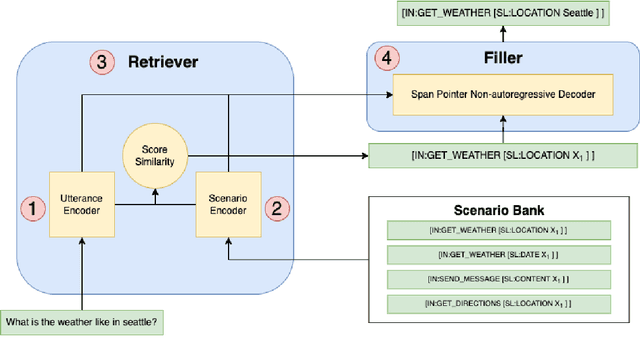Retrieve-and-Fill for Scenario-based Task-Oriented Semantic Parsing
Paper and Code
Feb 02, 2022



Task-oriented semantic parsing models have achieved strong results in recent years, but unfortunately do not strike an appealing balance between model size, runtime latency, and cross-domain generalizability. We tackle this problem by introducing scenario-based semantic parsing: a variant of the original task which first requires disambiguating an utterance's "scenario" (an intent-slot template with variable leaf spans) before generating its frame, complete with ontology and utterance tokens. This formulation enables us to isolate coarse-grained and fine-grained aspects of the task, each of which we solve with off-the-shelf neural modules, also optimizing for the axes outlined above. Concretely, we create a Retrieve-and-Fill (RAF) architecture comprised of (1) a retrieval module which ranks the best scenario given an utterance and (2) a filling module which imputes spans into the scenario to create the frame. Our model is modular, differentiable, interpretable, and allows us to garner extra supervision from scenarios. RAF achieves strong results in high-resource, low-resource, and multilingual settings, outperforming recent approaches by wide margins despite, using base pre-trained encoders, small sequence lengths, and parallel decoding.
 Add to Chrome
Add to Chrome Add to Firefox
Add to Firefox Add to Edge
Add to Edge